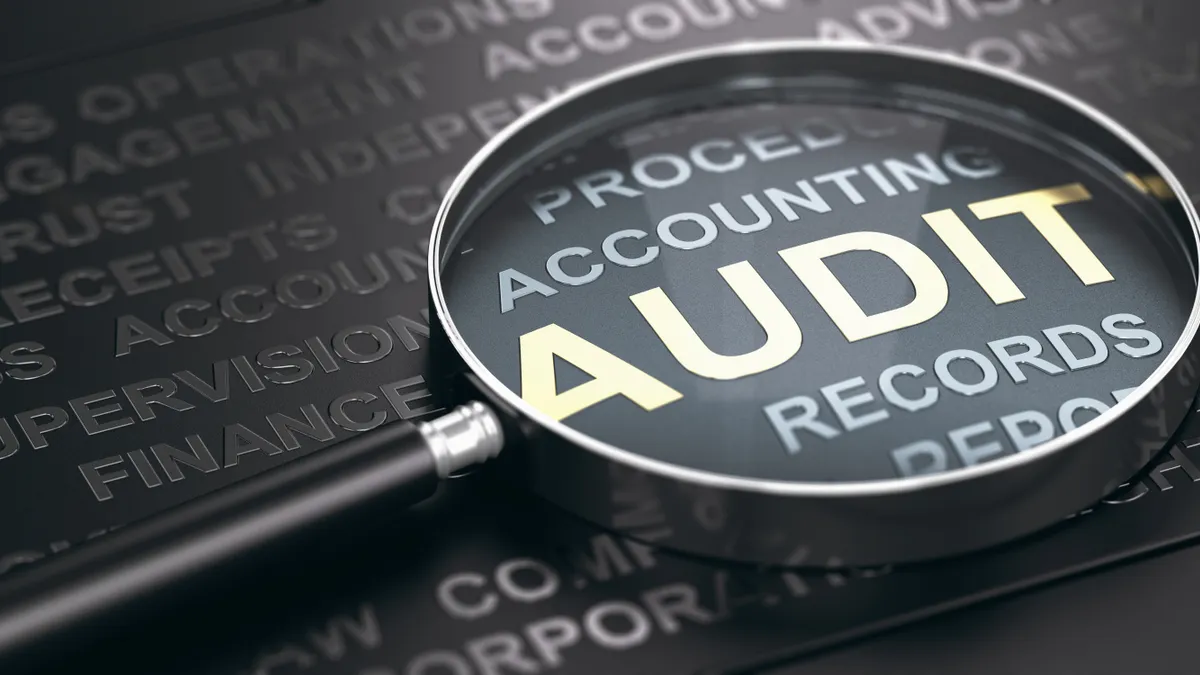Dive Brief:
- The Public Company Accounting Oversight Board issued for public comment a proposal that would require auditors to sharpen their vigilance for fraud and other noncompliance.
- Under the new requirements, auditors during client work would need to more actively identify, evaluate and communicate possible breaches of laws and regulations, the PCAOB said Tuesday. The deadline for public comment is Aug. 7.
- “By catching and communicating noncompliance sooner, auditors can help companies course correct and better protect investors from risk,” PCAOB Chair Erica Williams said in a statement.
Dive Insight:
Gary Gensler, after assuming the post as chair of the Securities and Exchange Commission in April 2021, replaced PCAOB leadership and called on it to strengthen oversight of the accounting firms that audit publicly listed companies. Williams was sworn in as chair in January 2022.
The PCAOB in March proposed an update of “foundational” audit standards and a requirement that the deadline for filing final documentation after completion of an audit be trimmed to 14 days from 45 days.
The board also seeks to unify into a single standard several interim audit rules created two decades ago that are focused on ensuring professional skepticism, independence, competence and judgment, with special attention to the engagement partner’s responsibilities.
Under the PCAOB’s newest proposal, auditors in their initial risk assessment at a business would need to identify regulations that would have a direct or indirect impact on the company’s financial statement.
“Our research has indicated that laws and regulations considered to have indirect effects on the financial statements, such as anti-money laundering regulations and environmental regulations, among others, can lead to substantial fines and penalties if violated,” the PCAOB said in its proposal.
“Moreover, our outreach has indicated that the distinction in dividing illegal acts into categories of those with direct effects and those with indirect effects on the financial statements has been a source of confusion to investors,” the board said.
“The auditing standards have historically used the distinction to limit the auditors’ responsibilities — such that the auditor need only perform certain audit procedures depending on the category,” according to the PCAOB.
In an indication of the ambiguity of current guidelines, the PCAOB's proposal explicitly says that financial statement fraud is a type of noncompliance with laws and regulations.
Under the new rules, auditors would need to more carefully evaluate whether noncompliance had occurred, and the possible impact on financial statements. PCAOB would also require auditors to determine whether they need to call on people with specialized knowledge or skill to assist in the identification of noncompliance.
Moreover, the board’s proposal mandates that the auditor report to company management and the audit committee as soon as the auditor has identified any noncompliance, and detail the results of the evaluation, including the likely impact on financial statements.
More timely notification of noncompliance would prompt companies to take quicker remedial steps, thereby reducing losses to investors from litigation or regulatory penalties, the PCAOB said.















